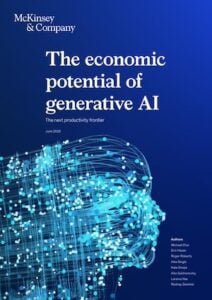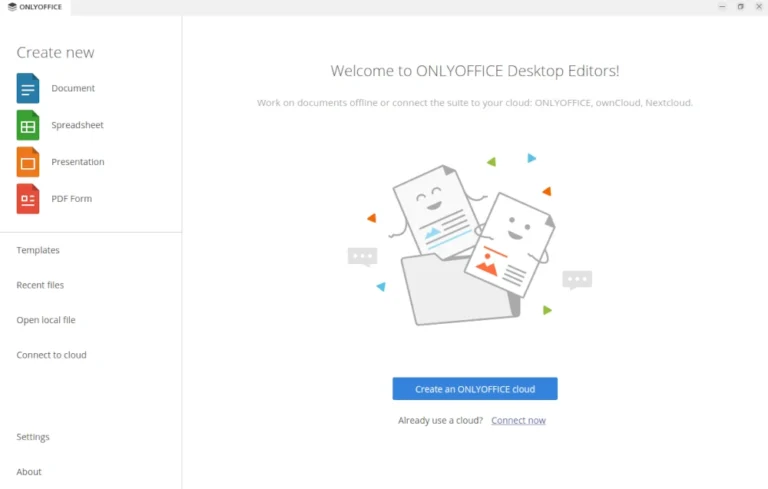Generative artificial intelligence has the potential to transform businesses in two key ways: automating operations and growing revenue.
While much of the focus in 2024 remains on operational improvements, the next generation of AI tools promises to enhance revenue and open new profit opportunities.
Automate Operations
In 2023, McKinsey & Company released a report titled “The economic potential of generative AI,” which estimated that globally, “generative AI could add the equivalent of $2.6 trillion to $4.4 trillion in value annually across the 63 use cases” that the firm analyzed.
In retail, the expected “value” — i.e., cost savings — could eventually reach $240 to $390 billion annually.

The economic potential of generative AI
Generative AI’s workflow and automation capabilities can streamline processes within an organization. For example, retailers now use generative AI to produce product descriptions, marketing materials, interactive chatbots, and even product search features.
Generative AI tools can convert long-form videos into shorts for YouTube, Reels, TikTok, and X — and repurpose into text-based blog and social media posts.
“Current generative AI and other technologies have the potential to automate work activities that absorb 60 to 70 percent of employees’ time today,” wrote the authors of the McKinsey report.
The result is elevated employee productivity, allowing a focus on relatively more critical or complex tasks that artificial intelligence cannot or should not manage.
Automating operations, however, is only the first step.
Grow Revenue
Generative AI can also grow revenue. The McKinsey report cites examples.
- Better search engine optimization. Gen AI can help marketers achieve higher conversions from organic search via superior page titles, image tags, and URLs.
- Increase the probability of a sale by creating comprehensive consumer profiles from structured and unstructured data and suggesting actions to improve engagement from client preferences.
- Improve lead development by syncing product info with customer profiles and creating discussion scripts to facilitate sales conversations, follow-ups, and lead nurturing.
- Enhanced use of data by interpreting multiple sources, such as customer feedback and behavior, to inform marketing strategies.
- Enhanced design by selecting and using better materials and optimizing designs for manufacturing, aesthetics, and market appeal.
- Improved product testing and quality. Generative AI can reduce testing periods and accelerate trial phases, improving a product’s time-to-market.
In short, generative AI offers companies immediate operational efficiencies and the promise of revenue gains. Merchants that optimize both areas will reduce costs and unlock sales growth, putting them ahead in a rapidly changing market.






